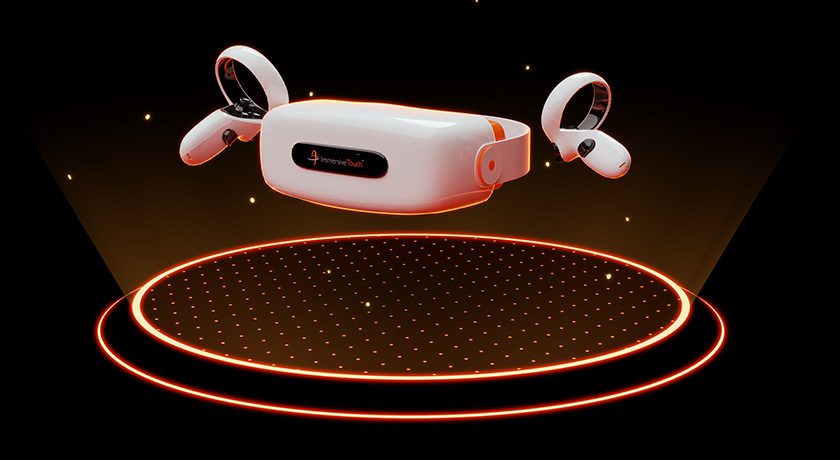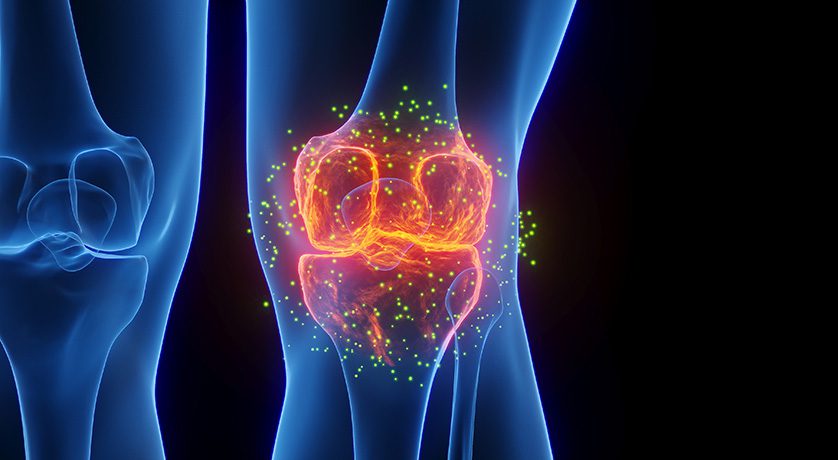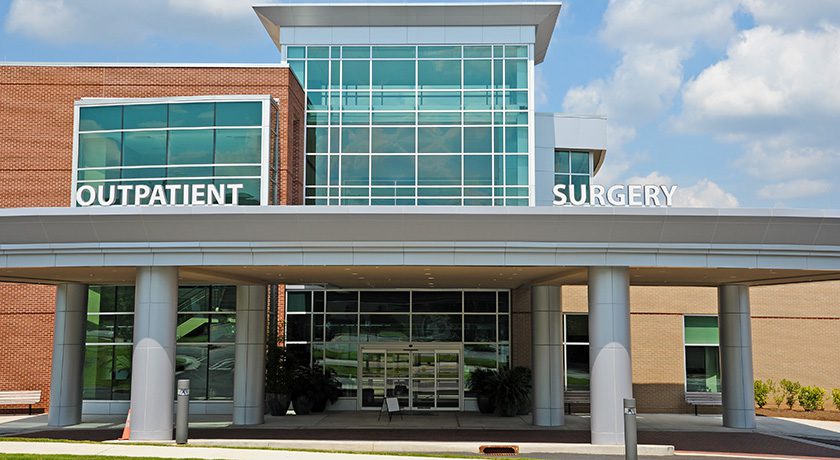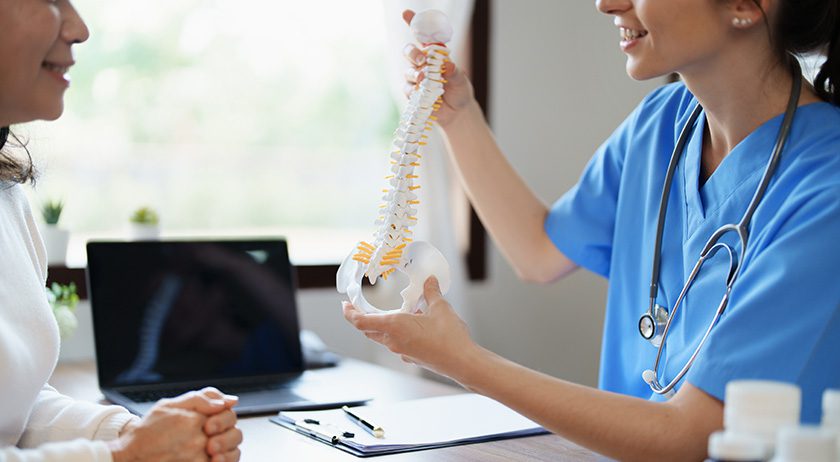
 Copy to clipboard
Copy to clipboard 
Of the 20 OEM-related merger/acquisition announcements we’ve covered in 2019, seven relate to the spine sector. Of those, three were announced in rapid succession within this quarter. Let’s see who bought whom, and what they got, in those three: Medtronic/Titan Spine, Boston Scientific/Vertiflex and WishBone Medical/CSpine.
On May 9, Medtronic announced its definitive agreement to acquire Titan Spine, provider of titanium spine interbody implant and nanoLock® surface enhancement technology.
The transaction is expected to close by the end of July, and financial terms were not revealed. The last time Titan Spine publicly disclosed annual revenue, it was $33.5 million in 2015. Various sources suggest that figure reached $63 million in 2017.
Titan was founded in 2005 by a former surgeon, Dr. Peter Ullrich, and Kevin Gemas who joined in 2006. Since then, it has reportedly raised over $50 million in funding, with the last Series B bringing in nearly $17 million in November 2018. Headquarters are based in Mequon, Wisconsin, and an overseas facility operates in Laichingen, Germany.
With this purchase, Medtronic will acquire Titan’s complete line of warrantied Endoskeleton® titanium surface-enhanced interbody devices. nanoLock-treated surfaces feature a micro- and nano-scaled architecture that is designed to improve the osteogenic response and support fusion.
Medtronic leadership believes that their biologics paired with Titan’s nanoLock surface enhanced devices can positively impact patient outcomes. Medtronic could use the biologics pull through from these devices, as biologics growth has decelerated over the last eight quarters. They grew 2.9% in 2018 after growing 4.4% in 2017.
Also on May 9, Boston Scientific announced its definitive agreement to acquire Vertiflex, developer of the Superion® Indirect Decompression System, by late 2Q19. This is a transaction of $465MM in cash plus contingency payments based on commercial milestones over three years. The Superion device is expected to achieve $60 million in 2019 revenue.
Superion creates space between the spinous processes of the vertebrae to improve function and reduce pain in lumbar spinal stenosis patients. The procedure is primarily performed by physicians who treat chronic pain patients with therapies such as spinal cord stimulation and radiofrequency ablation, which are offered by Boston Scientific within its pain management franchise.
“The acquisition of Vertiflex and the Superion System will further our category leadership strategy by expanding the breadth of our pain management product offerings,” said Maulik Nanavaty, President, Neuromodulation, Boston Scientific. “The addition of this differentiated technology, along with our leading spinal cord stimulation and radiofrequency ablation technologies, will provide physicians with the widest variety of solutions available to manage the growing number of patients suffering from chronic pain.”
Vertiflex was founded in 2005 and has, over the years, sold certain of its assets to Exactech and Stryker. The company is based in Carlsbad, California. Leadership includes industry veteran Earl R. Fender, who previously served as Worldwide President for DePuy Spine, head of U.S. sales for Synthes and VP/GM of Osiris Therapeutics.
Finally, also on May 9, WishBone Medical purchased CSpine, manufacturer of spine and orthopedic implants and instruments. The transaction, WishBone’s third since 4Q18, will support the company’s entry into the spine segment of pediatric orthopedics.
CSpine was formed in 2005 in Plymouth, Indiana by Charles Schnekenburger and Troy Walters, and WishBone and CSpine executives share academic ties dating back to 1995. While limited information is available about CSpine, its leadership has years of experience at Biomet and Medtronic Spine & Biologics.
CSpine handles FDA regulatory submission, mechanical testing referral/oversight and various engineering and design functions. They will manufacture implants to be combined and sterile packed with disposable instruments at Red Star Contract Manufacturing, which WishBone acquired in 4Q18. Moving forward, CSpine will operate under the new name of Red Star Medical Solutions, as part of the Red Star family.
The objective of these combined entities is to produce surgical solutions to treat pediatric spinal deformities such as scoliosis, packaged in sterile, single-use disposable kits. These kits will be employed in mission trips made worldwide by The WishBone Orthopaedic Foundation. Rob Seewald, WishBone Medical’s Corporate Chaplain, said, “Our foundation supporting surgeons could literally throw these kits into their backpacks and take it with them on missions to remote areas all over the globe. We’ll be able to aid children with severe spine issues who wouldn’t be able to afford treatment otherwise.”
This article originally appeared in BONEZONE®.
Julie A. Vetalice is ORTHOWORLD’s Editorial Assistant. Mike Evers is ORTHOWORLD’s Marketing Assistant.
Of the 20 OEM-related merger/acquisition announcements we’ve covered in 2019, seven relate to the spine sector. Of those, three were announced in rapid succession within this quarter. Let’s see who bought whom, and what they got, in those three: Medtronic/Titan Spine, Boston Scientific/Vertiflex and WishBone Medical/CSpine.
On May 9,...
Of the 20 OEM-related merger/acquisition announcements we’ve covered in 2019, seven relate to the spine sector. Of those, three were announced in rapid succession within this quarter. Let’s see who bought whom, and what they got, in those three: Medtronic/Titan Spine, Boston Scientific/Vertiflex and WishBone Medical/CSpine.
On May 9, Medtronic announced its definitive agreement to acquire Titan Spine, provider of titanium spine interbody implant and nanoLock® surface enhancement technology.
The transaction is expected to close by the end of July, and financial terms were not revealed. The last time Titan Spine publicly disclosed annual revenue, it was $33.5 million in 2015. Various sources suggest that figure reached $63 million in 2017.
Titan was founded in 2005 by a former surgeon, Dr. Peter Ullrich, and Kevin Gemas who joined in 2006. Since then, it has reportedly raised over $50 million in funding, with the last Series B bringing in nearly $17 million in November 2018. Headquarters are based in Mequon, Wisconsin, and an overseas facility operates in Laichingen, Germany.
With this purchase, Medtronic will acquire Titan’s complete line of warrantied Endoskeleton® titanium surface-enhanced interbody devices. nanoLock-treated surfaces feature a micro- and nano-scaled architecture that is designed to improve the osteogenic response and support fusion.
Medtronic leadership believes that their biologics paired with Titan’s nanoLock surface enhanced devices can positively impact patient outcomes. Medtronic could use the biologics pull through from these devices, as biologics growth has decelerated over the last eight quarters. They grew 2.9% in 2018 after growing 4.4% in 2017.
Also on May 9, Boston Scientific announced its definitive agreement to acquire Vertiflex, developer of the Superion® Indirect Decompression System, by late 2Q19. This is a transaction of $465MM in cash plus contingency payments based on commercial milestones over three years. The Superion device is expected to achieve $60 million in 2019 revenue.
Superion creates space between the spinous processes of the vertebrae to improve function and reduce pain in lumbar spinal stenosis patients. The procedure is primarily performed by physicians who treat chronic pain patients with therapies such as spinal cord stimulation and radiofrequency ablation, which are offered by Boston Scientific within its pain management franchise.
“The acquisition of Vertiflex and the Superion System will further our category leadership strategy by expanding the breadth of our pain management product offerings,” said Maulik Nanavaty, President, Neuromodulation, Boston Scientific. “The addition of this differentiated technology, along with our leading spinal cord stimulation and radiofrequency ablation technologies, will provide physicians with the widest variety of solutions available to manage the growing number of patients suffering from chronic pain.”
Vertiflex was founded in 2005 and has, over the years, sold certain of its assets to Exactech and Stryker. The company is based in Carlsbad, California. Leadership includes industry veteran Earl R. Fender, who previously served as Worldwide President for DePuy Spine, head of U.S. sales for Synthes and VP/GM of Osiris Therapeutics.
Finally, also on May 9, WishBone Medical purchased CSpine, manufacturer of spine and orthopedic implants and instruments. The transaction, WishBone’s third since 4Q18, will support the company’s entry into the spine segment of pediatric orthopedics.
CSpine was formed in 2005 in Plymouth, Indiana by Charles Schnekenburger and Troy Walters, and WishBone and CSpine executives share academic ties dating back to 1995. While limited information is available about CSpine, its leadership has years of experience at Biomet and Medtronic Spine & Biologics.
CSpine handles FDA regulatory submission, mechanical testing referral/oversight and various engineering and design functions. They will manufacture implants to be combined and sterile packed with disposable instruments at Red Star Contract Manufacturing, which WishBone acquired in 4Q18. Moving forward, CSpine will operate under the new name of Red Star Medical Solutions, as part of the Red Star family.
The objective of these combined entities is to produce surgical solutions to treat pediatric spinal deformities such as scoliosis, packaged in sterile, single-use disposable kits. These kits will be employed in mission trips made worldwide by The WishBone Orthopaedic Foundation. Rob Seewald, WishBone Medical’s Corporate Chaplain, said, “Our foundation supporting surgeons could literally throw these kits into their backpacks and take it with them on missions to remote areas all over the globe. We’ll be able to aid children with severe spine issues who wouldn’t be able to afford treatment otherwise.”
This article originally appeared in BONEZONE®.
Julie A. Vetalice is ORTHOWORLD’s Editorial Assistant. Mike Evers is ORTHOWORLD’s Marketing Assistant.

You are out of free articles for this month
Subscribe as a Guest for $0 and unlock a total of 5 articles per month.
You are out of five articles for this month
Subscribe as an Executive Member for access to unlimited articles, THE ORTHOPAEDIC INDUSTRY ANNUAL REPORT and more.
JV
Julie Vetalice is ORTHOWORLD's Editorial Assistant. She has covered the orthopedic industry for over 20 years, having joined the company in 1999.







